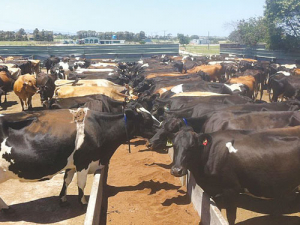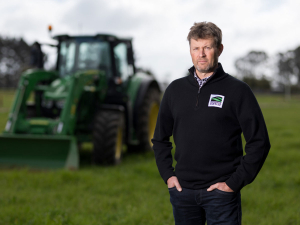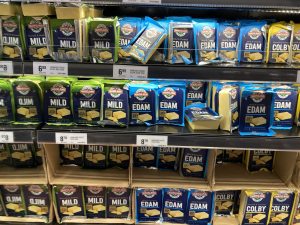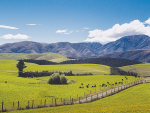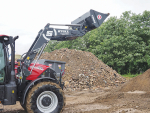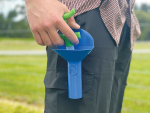A paper presented at the recent Northland Dairy Development Trust conference, relates the first two years of this study (2015-16 and 2016-17 seasons): “when all costs are considered a grass-only farm system may have similar profitability to a farm system importing PKE”.
The trial, to reduce reliance on imported feed, started in 2015-16 season at the Northland Agricultural Research Farm (NARF) in Dargaville. It pits two farms -- one grass only and the other home grown crops -- against a farm using PKE as supplementary feed. Stocking rate averaged 2.6 cows/ha on the grass-only farm and 2.8 cows/ha on the other two farms.
The study is backed by DairyNZ, MPI and the Hine Rangi Trust.
Results of the first two years of trials were presented by AgFirst science manager Northland Chris Boom and the NARF manager Kate Reed.
According to Boom, weather conditions were relatively kind during the first two seasons, resulting in good pasture growth and pasture covers on all farms: 17.4 tonnes DM/ha and 18.8t DM/ha for the two seasons, respectively.
In contrast, the 2017-18 season has been difficult with very wet conditions from July through to October and then dry conditions through November and December. Results from this season will be announced at a field day on the farm later this year.
Supplement use during the first two seasons was lower than expected on the PKE farm: 469kg DM PKE/cow fed in 2015-16 and 513kg DM PKE/cow in 2016-17. Crops were established on the cropping farm totalling 23% of the farm area in 2015-16 and 21% in 2016-17; crops sown were turnips (average yield 9.3t DM/ha), fodder beet (15.6t DM/ha) and maize silage (19.0t DM/ha).
In the 2015-16 season, milk production was highest on the cropping farm at 1049kgMS/ha versus 870kg MS/ha on the grass-only and 1028kg MS/ha on the PKE farm.
For the 2016-17 season, milk production was highest on the PKE farm at 1118kg MS/ha versus 965kg and 1053kg MS/ha for the grass-only and cropping farms, respectively.
Boom says the current season has proved more difficult.
By the end of January, the grass-only farm milk production was 14% down on the average of the previous two seasons, the cropping farm 20% down and the PKE farm 1% down. Poor soil structure on ex-crop paddocks led to high levels of pugging damage on the cropping farm during winter/spring of 2016 and 2017, compromising cropping farm production.
Costs were calculated for each of the farms, including differential labour requirements for the 2015-16 and 2016-17 seasons.
Over the two seasons, farm working expenses/kgMS averaged $3.73/kgMS for the grass-only farm, $4.27/kgMS for the cropping farm and $3.92/kgMS for the PKE farm.
In 2015-16 with a $3.90/kgMS milk price, the grass-only farm had the highest operating profit at $787/ha followed closely by the PKE farm at $733/ha and the cropping farm at $433/ha. For the 2016-17 season at a $6.12/kgMS milk price the PKE farm had the highest operating profit at $2,887/ha followed by the grass-only farm at $2761/ha and the cropping farm at $2300/ha.

